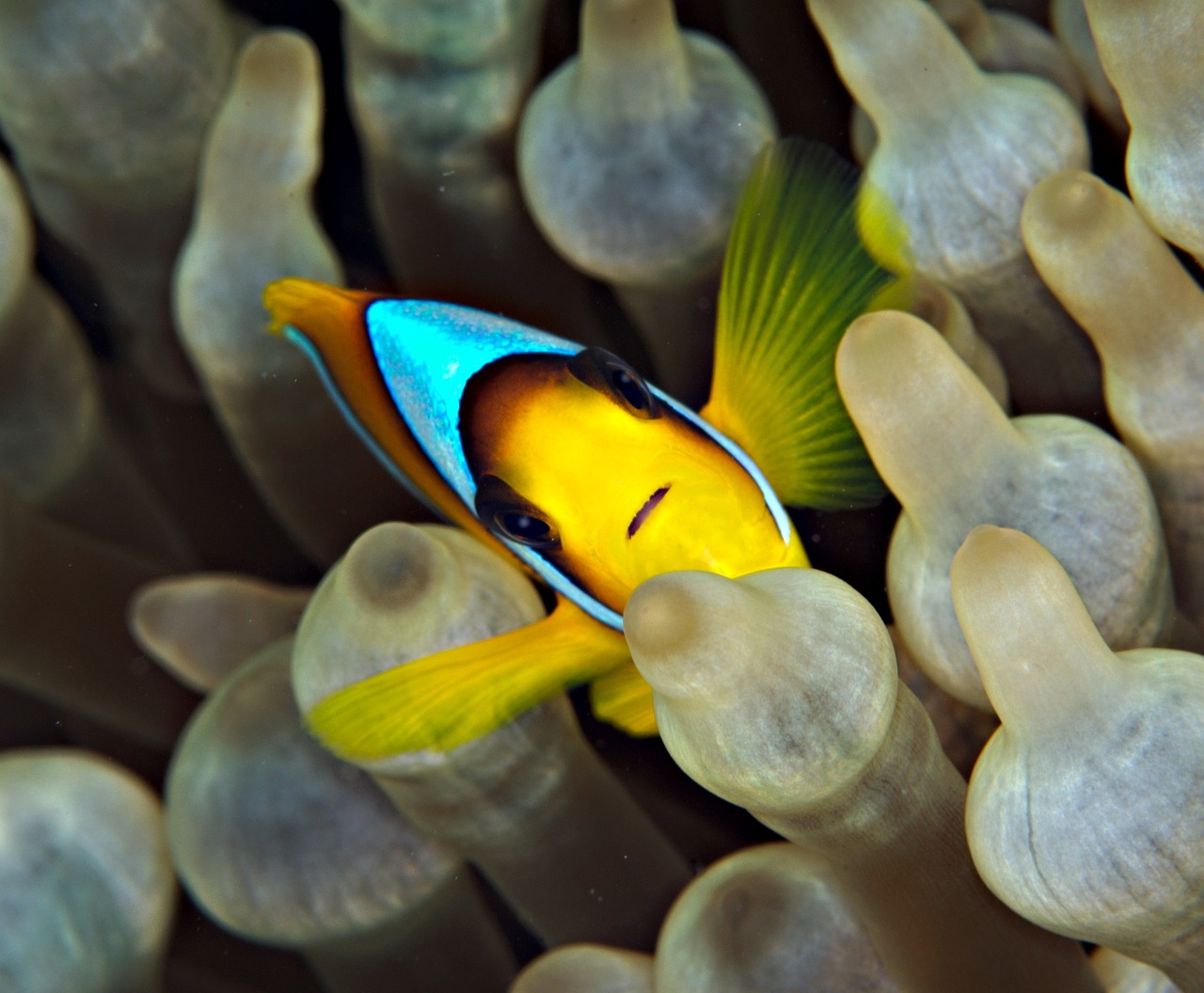clown fish diet is very important for your new fish. Clownfish are omnivores by nature and will eat just about anything that won’t eat them first. In the wild they will chow on any grub that presents itself to them, usually algae, small shrimp, cope-pods, and plankton. During the warmer months, clowns tend to eat primarily meaty foods and the opposite is true during the winter.
They are also known to horde meals in clown fish diet. They cannot safely leave their anemone without becoming a snack for another predator. They are forced to wait until some unsuspecting prey comes close enough to them before attacking. They will eat the smaller pieces and bring the larger ones back home to their host anemone.

From this information we can gather that clowns need a highly varied diet while in captivity. Because we can’t feed them all day long like they would in the wild, we must ensure that the feedings we do offer are very high in nutritional value. Most saltwater fish will eat better with an assortment of foods and clowns are no exception. If you continue to feed them the same thing every day they will become bored and stop eating, eventually leading to malnourishment.
what do clown fish eat?
Brine shrimp are like clownfish candy. They will go completely crazy over this stuff and will basically eat as much as you will offer. The only problem is that brine shrimp possess little, to no nutrition to our clowns. It is believed that they actually waste more energy in their “shrimp frenzy” than they actually gain from the food itself.
Because of this you should only offer brine on occasion, within the rotation of other foods that you offer. You will also want to fortify the shrimp with Selcon or Selco beforehand to boost their nutritional value.
The following are good choices to add to your clowns diet:
- Mysis Shrimp
- Zoo plankton
- Krill
- Pods
- Cyclop-eeze
- Nori Seaweed
- Blood-worms
- Rotifers
- Rod’s
- Pellets
- Flakes
- Fresh seafood of all kinds
How often and how much food you offer daily will depend on your personal schedule. Ideally clowns should be fed 3-4x a day, offering them as much as they will eat within about 5 minutes. Many will argue this topic, as some owners feed only a few times a week.
However, it is important to remember that surviving is different from thriving. Just because a fish can survive off of a few feedings per week, doesn’t mean that it is healthy for them. Humans can survive 5 days or more without food, but would you want to go that long between every meal?
clownfish feeding
There are a couple different ways to go about feeding. You want to keep in mind that any uneaten food will foul your water if you don’t have a good clean up crew(bottom feeders). Filtration also plays a factor in the amount of leftovers your system can handle, so the best advice is to watch and observe your fish closely. If they are leaving a lot of uneaten food, or you notice algae growth, reduce the amount of each feeding, or the frequency of them.
Spot feeding is one of the cleanest methods for offering foods. This will definitely take a lot more time, but will minimize leftover food particles.
Saturation feeding is the process of feeding until the fish cannot eat anymore. This is the recommended way to feed your clowns. You should feed them until “saturated” 3-4 times a day. You will know they are full when they spit their food out, like they would if the pieces are too large. This dietary schedule is especially important if you are trying to breed your fish. Once your fish reach their peak condition, they will slow down on their food intake and you should adjust your feeding regimen accordingly.
I would strive for 3-4 feedings a day if you have the time, until peak conditions are met. If you aren’t able to feed this often, one “saturated” feeding a day will do. I personally don not believe feeding just a few times a week is satisfactory.
Tips:
- Keep your feeding times regular. Clownfish are fairly routine and if a feeding time is missed they may become distressed.
- Adding garlic flakes, or soaking food in garlic beforehand will strengthen your fish’s immune system. Garlic has been credited with aiding many ill fish to a full recovery from common diseases.
- If your fish are new to their tank, they may not want to eat the first few days. Let them get comfortable for a few days before freaking out. They will be eating everything in sight before you know it.
- If your fish slow down on eating they might have reached their peak condition. This can also be a sign that you need to vary their diet more. Try changing what you are offering to get them to consume more.
- Offer pellets or flakes regularly to ensure that your fish are getting a complete diet.
- Snails, Shrimp, and Crabs are an ideal clean up crew(CUC) for your tank. They will take care of any leftovers and keep your water quality in tact